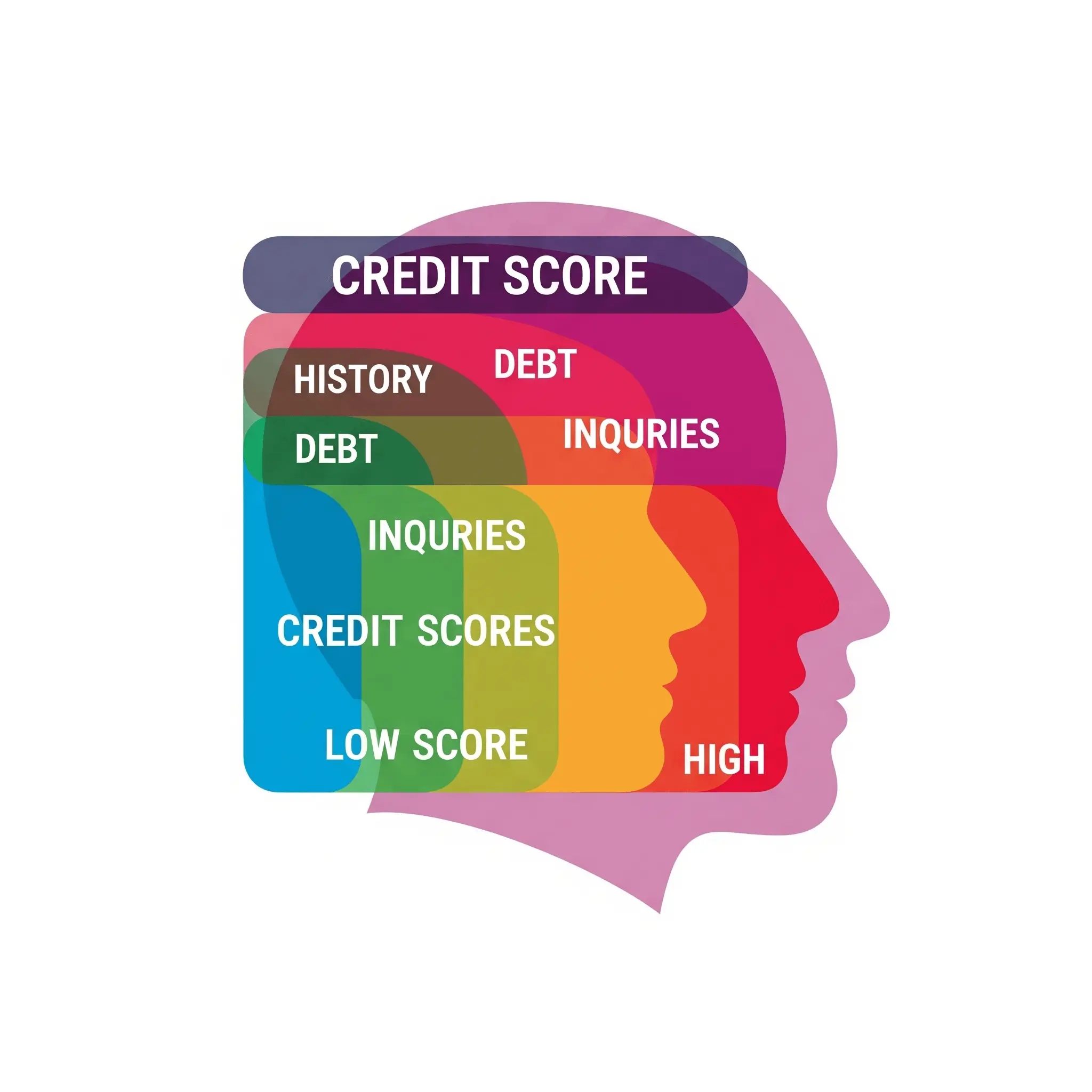Getting Your Credit Report and Credit Score: A Guide for Canadians
Published on June 17, 2025 | By WealthFusions Finance Team

Understanding your credit report and credit score is crucial for managing your financial health in Canada. Whether you’re applying for a mortgage, loan, or credit card, lenders rely on these to evaluate your creditworthiness. This guide explains how to obtain your credit report and score, what the numbers mean, and actionable tips to improve them. Stay empowered with knowledge that helps you unlock better financial opportunities.
1. What Is a Credit Report and Credit Score?
Your credit report is a detailed record of your credit history, including loans, credit cards, payment history, and any collections or bankruptcies. The credit score is a three-digit number, typically between 300 and 900, summarizing your credit risk based on the report.
In Canada, the most common credit scores are:
- Equifax Score: 300–900 range
- TransUnion Score: 300–900 range
A higher score means better creditworthiness; generally:
- 800–900: Excellent
- 740–799: Very Good
- 670–739: Good
- 580–669: Fair
- < 580: Poor
2. How to Get Your Free Credit Report in Canada
By law, Canadians can request a free copy of their credit report once per year from the two main credit bureaus:
Methods: Online, by mail, or by phone. Online requests provide the fastest access—usually immediately or within minutes.
Tip: Review reports from both bureaus annually to spot inconsistencies or errors.
3. How to Check Your Credit Score
Credit scores are often not included with free credit reports. You can check your score through:
- Equifax and TransUnion websites: Paid service or free trial offers.
- Financial institutions: Many banks and credit card companies (e.g., RBC, TD, Scotiabank) offer free monthly credit score updates through online banking apps.
- Third-party services: Websites like Credit Karma and Borrowell provide free credit scores and reports powered by TransUnion or Equifax.
4. Why Regularly Checking Your Credit Report Matters
Regular checks help you:
- Detect identity theft or fraud early.
- Identify errors or outdated information that could hurt your score.
- Monitor progress if you’re rebuilding credit.
- Understand how financial behaviors affect your score.
5. Understanding Factors That Impact Your Credit Score
Credit scores are calculated using these key factors:
| Factor | Weight | Description |
|---|---|---|
| Payment History | 35% | On-time payments on loans and credit cards |
| Credit Utilization | 30% | Amount of credit used compared to available credit limits |
| Length of Credit History | 15% | Age of your oldest and average credit accounts |
| Credit Mix | 10% | Variety of credit types (credit cards, loans, mortgage) |
| New Credit Inquiries | 10% | Number of recent hard credit checks from applications |
6. How to Improve Your Credit Score
- Pay bills on time: Avoid late payments—use automatic payments or reminders.
- Keep credit utilization low: Aim to use less than 30% of your credit limit.
- Maintain long-standing accounts: Older accounts boost your credit age.
- Limit new credit applications: Multiple inquiries in a short period can lower your score.
- Check your reports regularly: Fix errors by disputing with bureaus.
7. What to Do if You Find Errors in Your Credit Report
If you spot inaccuracies such as wrong balances, accounts you didn’t open, or outdated info, take these steps:
- Document the error with screenshots or copies.
- File a dispute online with the credit bureau (Equifax or TransUnion).
- Contact the creditor to correct the information.
- Follow up and keep records of all communications.
Correcting errors can boost your score and prevent loan denials.
8. How Often Should You Check Your Credit Report?
It’s best practice to:
- Check your credit reports from both bureaus at least once per year.
- Monitor your credit score quarterly, especially if applying for loans.
- Check immediately if you suspect fraud or identity theft.
Conclusion & Next Steps
Accessing your credit report and credit score is simple and free in Canada. Regular monitoring helps you stay on top of your financial health, avoid surprises, and unlock better borrowing rates. Use the strategies here to check your credit, understand your score, and improve it over time.
Vist today for personalized credit advice and financial planning tailored to your goals.
Frequently Asked Questions
- 1. How long does it take to get a credit report?
- Online requests are usually immediate; mailed reports take 10–15 business days.
- 2. Is checking my credit report bad for my score?
- No. Checking your own report is a soft inquiry and doesn’t affect your credit score.
- 3. Can I get my credit report for free more than once a year?
- You can pay for additional reports or use free services like Credit Karma, which update scores monthly.
- 4. What is a hard inquiry?
- A hard inquiry occurs when a lender checks your credit for a loan or credit card application; too many can lower your score.
- 5. How long does negative information stay on my report?
- Most negative info remains for 6–7 years; bankruptcies may remain up to 7 years or more.
- 6. How do I know which credit bureau a lender uses?
- It varies; some lenders use Equifax, others TransUnion. Checking both reports is safest.
- 7. Can a credit score improve quickly?
- Significant improvements usually take months of positive credit behavior, but fixing errors can have an immediate impact.
- 8. Are credit reports and credit scores the same?
- No. The report is your detailed credit history; the score is a number derived from that report.

